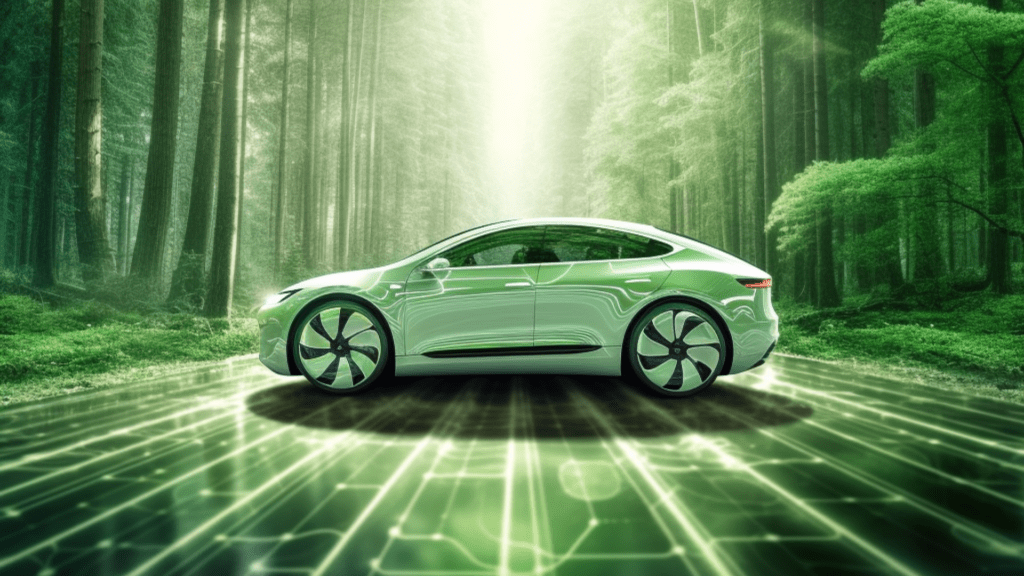Eco-friendly cars, particularly electric vehicles (EVs) and hybrids, have become a significant focus in the automotive industry. With the rising awareness of climate change and the push for sustainable alternatives, these vehicles offer the promise of reduced carbon emissions and lower fuel dependency. Companies like Tata Motors have taken the lead in India’s EV segment, driving innovation and affordability in the market. Investors keen on this growing trend often keep a close eye on Tata Motors’ share price, which reflects the company’s progress in tapping into the electric vehicle revolution. For those seeking informed investment decisions, consulting a SEBI-registered advisor is crucial to understand the financial implications of this shift.
But beyond the hype and environmental benefits, a pressing question arises: Are eco-friendly cars truly cost-effective in the long run? Let’s break this down by examining their initial investment, operational savings, and overall value proposition.
1. Initial Investment: Higher Upfront Costs
Eco-friendly cars typically come with a higher price tag compared to conventional internal combustion engine (ICE) vehicles. This is primarily due to the cost of advanced technologies such as lithium-ion batteries and electric powertrains. For instance, EVs in India, including Tata’s Nexon EV, are priced higher than their petrol or diesel counterparts.
However, government incentives, subsidies, and tax benefits often offset a portion of these costs. Many countries, including India, offer attractive schemes to promote the adoption of EVs, making the transition slightly easier for consumers.
2. Lower Operating Costs: The Real Game-Changer
One of the most significant advantages of eco-friendly cars is their lower operational costs. EVs run on electricity, which is cheaper than petrol or diesel. For example, the cost per kilometer for an electric car is significantly lower than that of a fuel-based vehicle.
Additionally, EVs have fewer moving parts, which reduces the need for frequent maintenance. Unlike traditional engines, electric motors don’t require oil changes, and wear-and-tear components like brake pads last longer due to regenerative braking systems. Over time, these savings can make a substantial difference.
3. Resale Value and Longevity
Resale value is another crucial factor when evaluating the cost-effectiveness of eco-friendly cars. While the market for used EVs is still developing, factors like battery health and manufacturer reputation play a significant role. Tata Motors, for example, has focused on building reliable EVs with robust warranties, which enhances their resale appeal.
Moreover, advancements in battery technology have significantly improved the longevity of EV batteries. Many manufacturers now offer warranties extending up to 8 years, ensuring durability and peace of mind for buyers.
4. Environmental and Financial Payoff
Eco-friendly cars not only contribute to reducing greenhouse gas emissions but also offer long-term financial savings. For consumers who drive frequently or cover significant distances, the fuel savings alone can justify the higher initial investment.
For investors, the shift toward sustainable vehicles represents a lucrative opportunity. Companies like Tata Motors are at the forefront of this transition, and tracking their share price can provide insights into the industry’s growth trajectory. Partnering with a SEBI-registered advisor ensures you make informed decisions in this evolving landscape.
Conclusion
While eco-friendly cars may seem expensive at first glance, their long-term cost benefits often outweigh the initial investment. From lower fuel and maintenance costs to government incentives and environmental contributions, they present a compelling case for both consumers and investors.
As the world accelerates toward a greener future, brands like Tata Motors continue to innovate, driving down costs and making sustainable transportation more accessible. Whether you’re considering purchasing an eco-friendly car or exploring investment opportunities in this sector, the potential for long-term gains—both financial and environmental—is undeniable.
You may also like
-
Elevate Your Speed Experience with Toyota’s New Models
-
Expert Power Window Repair Services at A Plus Auto Glass in Houston, TX
-
Isuzu Truck Windshield Repair and Replacement by Imperium Auto Glass in Houston, TX
-
Comparing Four-Post and Two-Post Automotive Lifts: Which Is Best for Your Needs?
-
How Do Armored Sedans Balance Performance with Safety?


